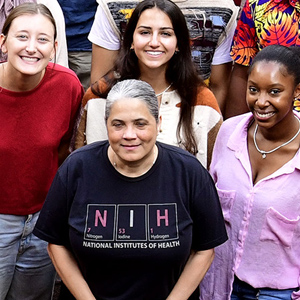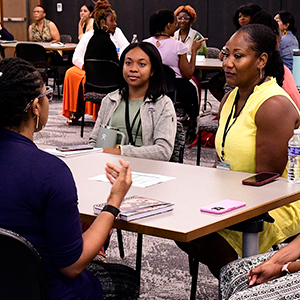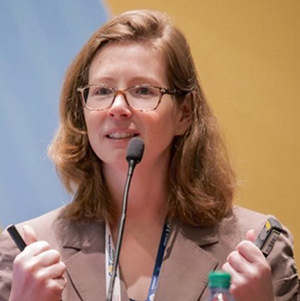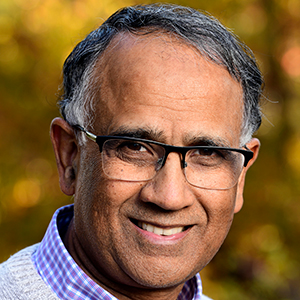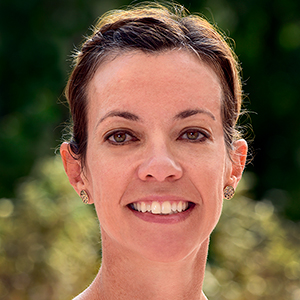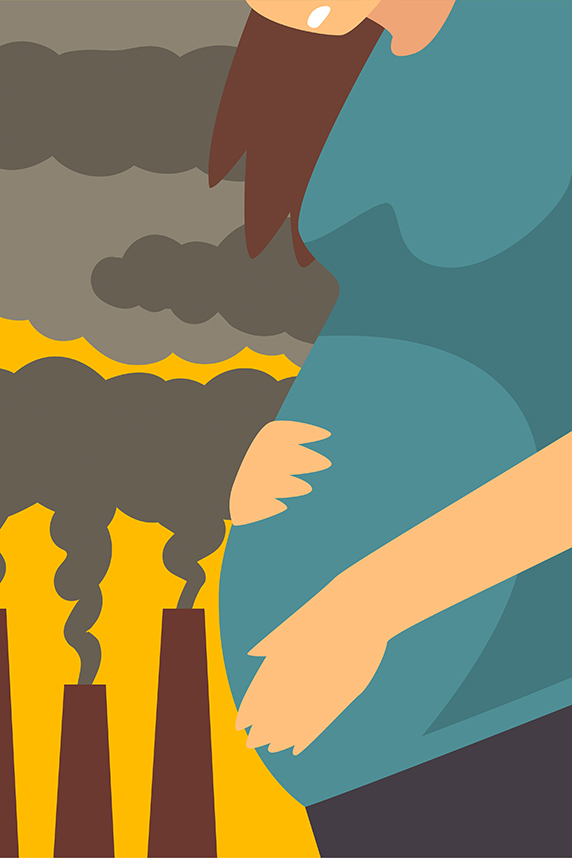 Air pollution is a mixture of natural and man-made substances in the air we breathe. It is typically separated into two categories: outdoor and indoor air pollution.
Air pollution is a mixture of natural and man-made substances in the air we breathe. It is typically separated into two categories: outdoor and indoor air pollution.On Aug. 15, National Institutes of Health (NIH) scientists from NIEHS and the Eunice Kennedy Shriver National Institute of Child Health and Human Development (NICHD) connected with science enthusiasts on the social media platform Reddit. The team hosted an online Q&A, called a Reddit Ask Me Anything (AMA), about their work on air pollution, pregnancy, and child health. They were available to a potential audience of nearly 18 million Reddit users.
The AMA was hosted by scientists from NIEHS and NICHD, as well as an NIEHS grantee.
- Brandy Beverly, Ph.D., from the National Toxicology Program, which is housed at NIEHS.
- Kimberly Gray, Ph.D., from the NIEHS Population Health Branch.
- Pauline Mendola, Ph.D., from the NICHD Division of Intramural Population Health Research.
- Carrie Nobles, Ph.D., a research fellow in the Epidemiology Branch of the NICHD Division of Intramural Population Health Research.
- Beate Ritz, Ph.D., an NIEHS-funded researcher from the University of California Los Angeles.
Together, they answered over 20 questions on such topics as how environmental pollutants can change the balance of a person’s microbiome. The team, all women in science fields, also received questions on career advice for women pursing research in this area. Finally, Reddit users wanted to know if there were steps pregnant women could take to ensure a healthy pregnancy.
Portions of the discussions appear below.
Q: Has any research been done on environmental pollutants and the human microbiome, particularly on dysfunction (neuro or otherwise) that may be related to disruption of the microbiome?
A: Hi from NIEHS! Yes, there have been many studies investigating the role that the microbiome plays in the impact of environmental pollutants on human health, and this area of research is only growing.
NIEHS has had two initiatives over the last decade to help grow this area. The most recent one was aimed at establishing a causal link between early life environmental exposures and later onset disease (diabetes, dyslipidemia, asthma, neurobehavioral outcomes, etc.) through changes in the microbiome.
Beyond microbial changes as a factor in disease progression, we are also interested in the impact of the microbiome on chemicals in the human body. The microbiome can increase metabolism of some chemicals to be more toxic, alter their distribution throughout the body, and ultimately increase or decrease exposure for individuals.
There is certainly a lot more work to be done to understand the role of the microbiome in environmental human health. NIEHS Partnerships for Environmental Public Health hosted a podcast on the role of environment and microbiome and related materials and resources. Check it out! (see sidebar.)
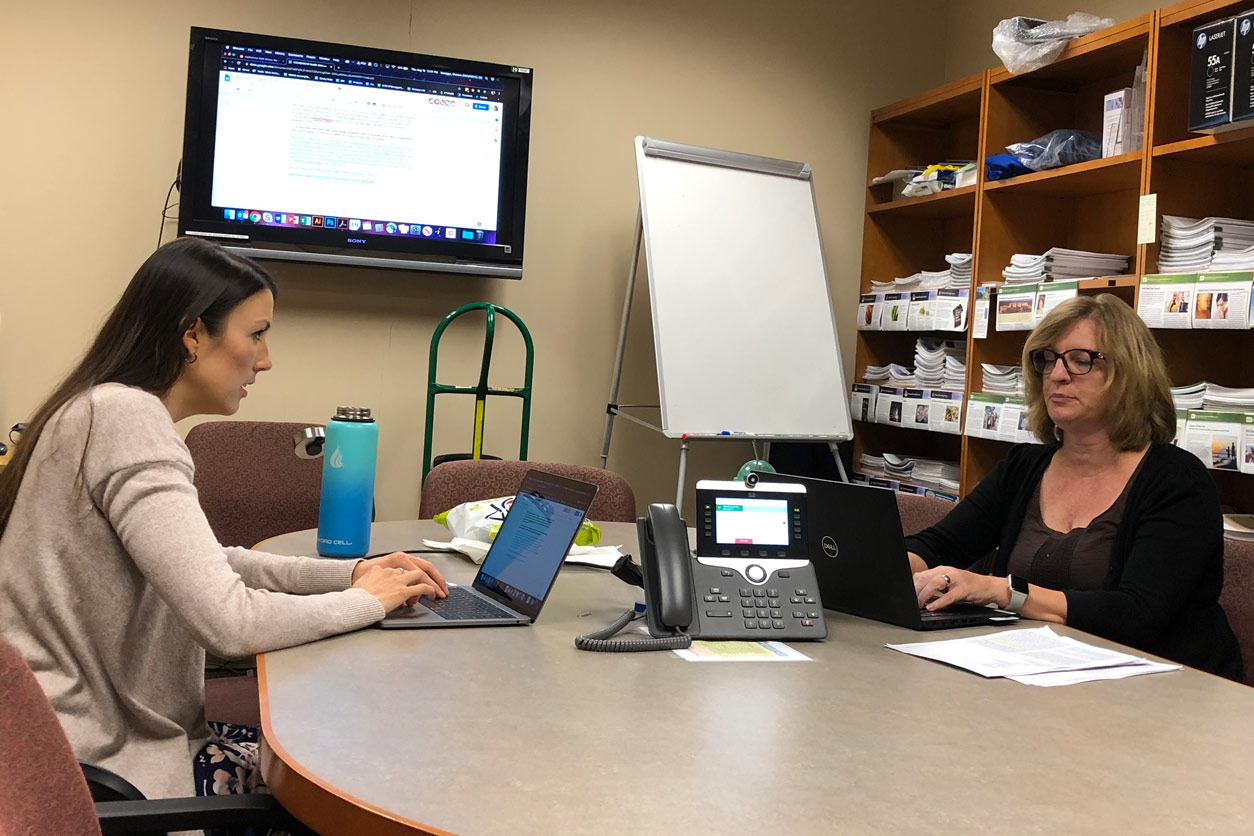 Gray, right, and Scruggs answered questions during the AMA. Mendola, Nobles, Ritz, and Beverly joined from elsewhere via teleconference. (Photo courtesy of Ian Thomas)
Gray, right, and Scruggs answered questions during the AMA. Mendola, Nobles, Ritz, and Beverly joined from elsewhere via teleconference. (Photo courtesy of Ian Thomas)Q: Hello, I am currently working on my M.P.H. [master’s in public health] with an environmental health focus. I would like to focus my career on the climate and health issues. Do you recommend continuing to get my Ph.D.? Do you have any other advice for females starting their careers within this field?
A: That’s wonderful you’re interested in a career in climate and health — it’s a critically understudied and underfunded area of research. From my [Nobles] experience, career paths in public health are often quite varied, with many people coming into the field from other careers and, particularly for women, pursuing advanced training/education later in life.
For me, I had little practical experience when I received my M.P.H., so working for a few years before pursuing a Ph.D. made sense. But there’s really no right or wrong next step.
I think the most important thing is to find good training environments and good mentors where you can have new experiences and lean on people who have gone through those decisions before, whether it’s in a graduate program, the workforce or another avenue.
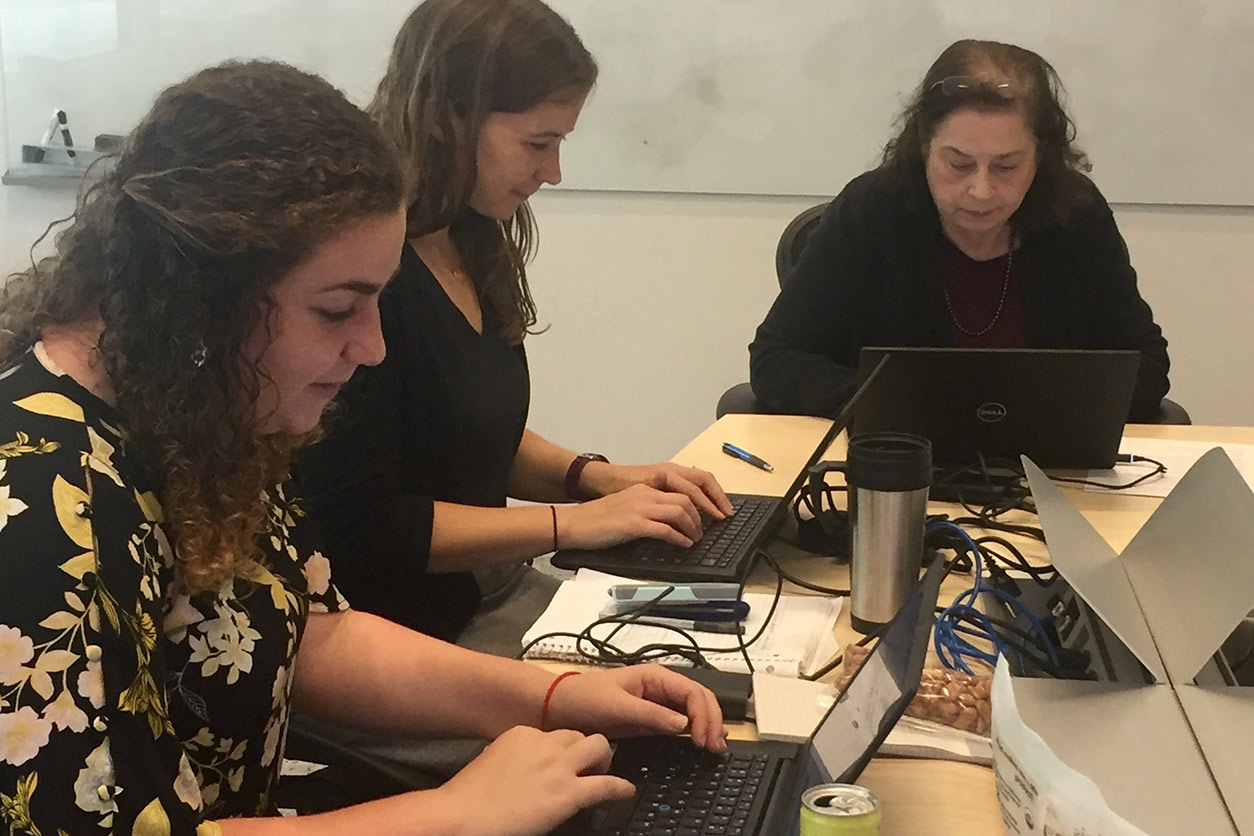 From right, Mendola, Nobles, and NICHD postbaccalaureate fellow Jenna Kanner answered questions from their headquarters in Bethesda, Maryland. (Photo courtesy of Meredith Daly, NICHD)
From right, Mendola, Nobles, and NICHD postbaccalaureate fellow Jenna Kanner answered questions from their headquarters in Bethesda, Maryland. (Photo courtesy of Meredith Daly, NICHD)Q: Thanks for hosting! How can pregnant women who live in close proximity to a facility that emits significant quantities of air pollution best protect herself and her baby?
A: Hi, this is Brandy — Great question! Unfortunately, air pollution is hard to avoid, but the goal is to limit pregnant women’s exposure to air pollution because of the increased risk for health problems for both mother and child.
There are things you can do to limit that exposure, such as using air filters in the house and limiting time outside when the air quality is bad.
Paying attention to the air quality index is a good guide for outdoor activities during pregnancy. It is also always a good idea to follow general advice for healthy living during pregnancy, including taking prenatal vitamins from the very beginning, maintain a healthy diet, not smoking and staying away from smokers, or using your fume hood while cooking.
 Reddit has over 330 million unique monthly users.
Reddit has over 330 million unique monthly users.Check out a few more of the questions and answers in the archived Reddit AMA on Reddit Ask Science, and stay tuned for more NIEHS AMAs in the future.
(Sheena Scruggs, Ph.D., is Digital Outreach Coordinator in the NIEHS Office of Communications and Public Liaison.)





